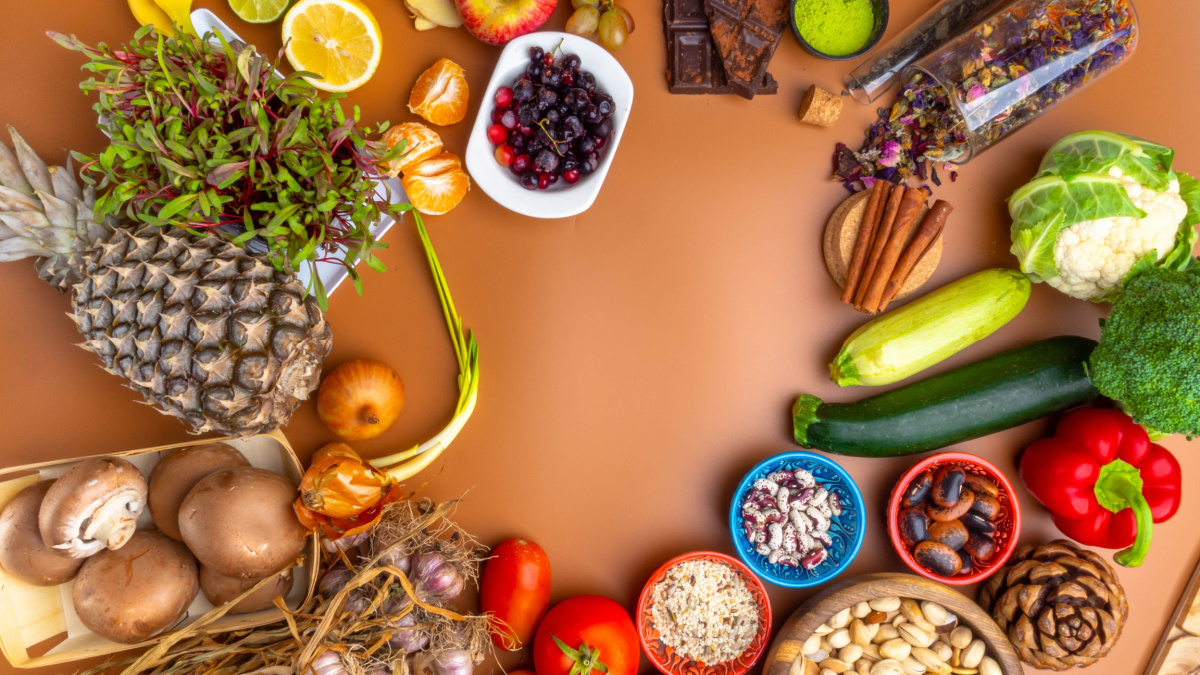Metabolism is the process by which our bodies convert food into energy. It is a complex process that involves the breakdown of carbohydrates, fats, and proteins, and the release of energy that is used to power all the functions of our body. Understanding metabolism is important because it plays a crucial role in maintaining our overall health and well-being. A slow metabolism can lead to weight gain, fatigue, and other health problems, while a fast metabolism can help us maintain a healthy weight and provide us with more energy. By learning more about how metabolism works and how we can boost it through diet and exercise, we can take control of our health and improve our quality of life.
The Science Behind Metabolism-Boosting Foods
Metabolism-boosting food works by stimulating the body’s metabolic processes, which can help improve energy levels, promote weight loss, and reduce the risk of chronic diseases. Some of the most effective metabolism-boosting foods include protein-rich foods like lean meats, eggs, and nuts, as well as fiber-rich fruits and vegetables like apples, berries, and leafy greens.
The science behind these foods lies in their ability to affect the body’s metabolic rate and hormonal balance. For example, protein-rich foods increase the body’s production of growth hormone, which can help improve muscle mass and reduce body fat. Fiber-rich foods, on the other hand, can help regulate blood sugar levels and reduce insulin resistance, which can help prevent the development of type 2 diabetes. By incorporating these metabolism-boosting foods into your diet, you can help support a healthy weight and improve your overall health and well-being.
Top 12 Foods To Boost Your Metabolism: A Comprehensive List
Boosting your metabolism can help you burn more calories and maintain a healthy weight. While no single food can magically increase your metabolism, incorporating certain foods into your diet can have a positive impact. Here’s a list of 12 foods that are known to potentially boost your metabolism:
- Green Tea: Green tea contains catechins, a type of antioxidant that may help increase metabolism and fat oxidation.
- Chili Peppers: Capsaicin, the compound responsible for the spiciness of chili peppers, may temporarily boost your metabolism and increase fat burning.
- Coffee: The caffeine in coffee can stimulate your central nervous system and increase metabolism. However, moderation is key as excessive consumption can have negative effects.
- Whole Grains: Whole grains like quinoa, brown rice, and oats require more energy to digest compared to refined grains, thus temporarily boosting your metabolism.
- Lean Proteins: Foods like chicken, turkey, fish, tofu, and legumes require more energy to digest, which can increase your metabolism. Protein also helps maintain and build lean muscle mass.
- Greek Yogurt: Greek yogurt is rich in protein and calcium. The combination of these two nutrients can potentially increase your metabolism and help maintain muscle mass.
- Berries: Berries, such as blueberries, strawberries, and raspberries, are packed with antioxidants and fiber, which may support a healthy metabolism.
- Cruciferous Vegetables: Vegetables like broccoli, cauliflower, cabbage, and Brussels sprouts are high in fiber and have a thermogenic effect, meaning they require more energy to digest.
- Apple Cider Vinegar: Some studies suggest that apple cider vinegar may help boost metabolism by increasing fat burning. However, more research is needed to confirm its effectiveness.
- Fatty Fish: Fish like salmon, mackerel, and sardines are excellent sources of omega-3 fatty acids. Omega-3s can potentially enhance your metabolism and support overall health.
- Nuts and Seeds: Almonds, walnuts, flaxseeds, and chia seeds are packed with healthy fats, protein, and fiber, which can help boost metabolism and promote satiety.
- Water: Although not a food, drinking water is essential for optimal metabolism. Staying hydrated ensures that your body’s metabolic processes run smoothly.
How To Incorporate Metabolism-Boosting Foods Into Your Diet
Incorporating metabolism-boosting foods into your diet can be a great way to jumpstart your weight loss journey. Some of the best metabolism-boosting foods include lean proteins, whole grains, fruits and vegetables, and healthy fats. These foods are packed with nutrients that help your body burn calories more efficiently, which can lead to faster weight loss.
When incorporating these foods into your diet, it’s important to focus on balance and variety. Try to include a mix of different foods at each meal, and aim for a balance of macronutrients (protein, carbohydrates, and healthy fats). Additionally, be sure to stay hydrated and get plenty of sleep, as these factors can also impact your metabolism. By making these changes to your diet and lifestyle, you’ll be well on your way to a healthier, more energized you.
Recipes And Meal Ideas Featuring Metabolism-Boosting Foods
If you want to boost metabolism in your body, you can try these best three recipes. They are very easy to prepare and are definitely delicious.
Green Tea Smoothie
Ingredients:
- 1 cup brewed green tea, chilled
- 1 cup spinach
- 1 small banana
- ½ cup pineapple chunks
- ½ cup Greek yogurt
- 1 tablespoon honey (optional)
- Ice cubes
Instructions:
- Brew green tea and allow it to cool.
- In a blender, combine the chilled green tea, spinach, banana, pineapple chunks, Greek yogurt, and honey (if desired).
- Blend until smooth and creamy.
- Add ice cubes and blend again until the smoothie reaches your desired consistency.
- Pour into a glass and enjoy as a refreshing metabolism-boosting drink.
Spicy Grilled Chicken with Quinoa Salad
Ingredients:
- 2 boneless, skinless chicken breasts
- 1 tablespoon olive oil
- 1 teaspoon chili powder
- ½ teaspoon paprika
- ½ teaspoon cayenne pepper (adjust according to your spice tolerance)
- Salt and pepper to taste
Ingredients for Quinoa Salad:
- 1 cup cooked quinoa
- ½ cup cherry tomatoes, halved
- ½ cup cucumber, diced
- ¼ cup red onion, finely chopped
- 2 tablespoons fresh lemon juice
- 1 tablespoon extra-virgin olive oil
- Salt and pepper to taste
Instructions:
- Preheat the grill or grill pan.
- In a bowl, combine olive oil, chili powder, paprika, cayenne pepper, salt, and pepper. Mix well.
- Brush the chicken breasts with the spice mixture, coating them evenly.
- Grill the chicken breasts for about 6-8 minutes per side until cooked through.
- Remove the chicken from the grill and let it rest for a few minutes. Then slice it into strips.
- In a separate bowl, combine the cooked quinoa, cherry tomatoes, cucumber, red onion, lemon juice, olive oil, salt, and pepper. Toss to mix well.
- Serve the sliced grilled chicken on top of the quinoa salad and enjoy a delicious, protein-packed meal that may help boost your metabolism.
Berry and Almond Overnight Oats
Ingredients:
- ½ cup rolled oats
- ½ cup unsweetened almond milk
- ¼ cup Greek yogurt
- 1 tablespoon chia seeds
- 1 tablespoon almond butter
- ½ cup mixed berries (such as blueberries, strawberries, and raspberries)
- 1 tablespoon honey or maple syrup (optional)
- Sliced almonds for topping
Instructions:
- In a jar or container, combine rolled oats, almond milk, Greek yogurt, chia seeds, almond butter, and honey or maple syrup (if desired). Mix well.
- Add the mixed berries to the mixture and stir gently.
- Cover the jar or container and refrigerate overnight or for at least 4 hours.
- In the morning, give the oats a good stir and top with sliced almonds.
- Enjoy the delicious and nutritious overnight oats, providing a combination of fiber, protein, and antioxidants that may help boost your metabolism throughout the day.
Remember to adjust the portion sizes and ingredients according to your dietary needs and preferences. These recipes can be a flavorful addition to your diet while potentially supporting a healthy metabolism when combined with an overall balanced eating plan.
Myths and Misconceptions About Metabolism and Weight Loss
There are several common myths and misconceptions about metabolism and weight loss that can often lead to confusion or misguided beliefs. Let’s address some of these myths and provide clarification:
Myth: Metabolism is solely determined by genetics and cannot be changed.
While genetics play a role in determining your metabolic rate, lifestyle factors such as diet, physical activity, and muscle mass can also influence it. Engaging in regular exercise, strength training, and eating a balanced diet can help boost your metabolism.
Myth: Eating small, frequent meals throughout the day boosts metabolism.
The concept of eating small, frequent meals to boost metabolism is not supported by scientific evidence. The effect of meal frequency on metabolism is minimal. What matters more is the overall calorie intake and the quality of the food consumed.
Myth: Certain foods have negative calories and burn more calories during digestion than they provide
The idea of “negative-calorie” foods suggests that the energy expended in digesting these foods exceeds the calories they contain. However, the thermic effect of food is relatively small, and there are no foods that result in a negative net calorie balance.
Myth: Starving yourself or skipping meals helps in weight loss by slowing down metabolism.
Severely restricting calories or skipping meals can actually slow down your metabolism. When the body is deprived of adequate energy, it conserves calories by reducing metabolic rate. It’s important to eat balanced meals and provide your body with the necessary nutrients for optimal metabolism.
Myth: Drinking ice-cold water or consuming spicy foods boosts metabolism significantly.
While there is a small, temporary increase in calorie expenditure when consuming ice-cold water or spicy foods, the effect is minimal and does not have a significant impact on long-term weight loss or metabolism.
The Importance Of A Balanced Diet And Active Lifestyle For Optimal Metabolism And Health
Maintaining a balanced diet and an active lifestyle are crucial for optimal metabolism and overall health. Consuming nutrient-dense foods like lean protein, whole grains, and fruits and vegetables can provide the necessary energy and nutrients for the body to function properly. Additionally, incorporating regular exercise into your routine can increase muscle mass and improve metabolic rate, leading to better weight management and overall health. By prioritizing a balanced diet and active lifestyle, individuals can not only boost their metabolism but also reduce their risk of chronic diseases and promote longevity.









